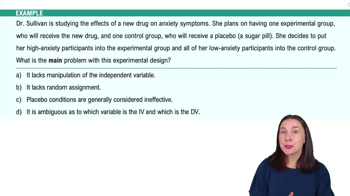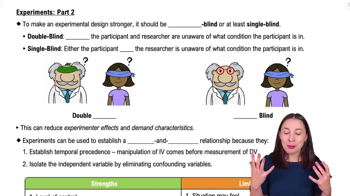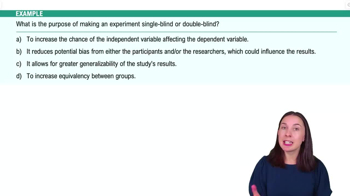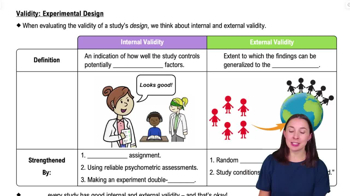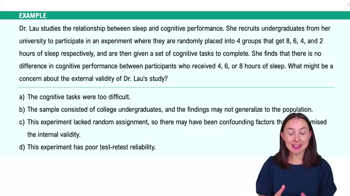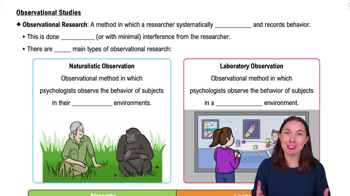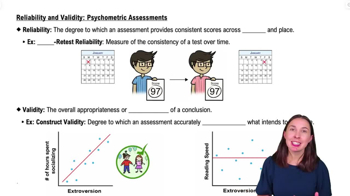Table of contents
- 1. Introduction to Psychology1h 43m
- 2. Psychology Research2h 20m
- 3. Biological Psychology2h 41m
- 4. Sensation and Perception28m
- 5. Consciousness and Sleep32m
- 6. Learning41m
- 7. Memory34m
- 8. Cognition37m
- 9. Emotion and Motivation35m
- 10. Developmental Psychology33m
- 11. Personality48m
- 12. Social Psychology41m
- 13. Stress and Health41m
- 14. Psychological Disorders44m
- 15. Treatment47m
2. Psychology Research
Intro to Research Methods
Struggling with Psychology?
Join thousands of students who trust us to help them ace their exams!Watch the first videoMultiple Choice
The functioning, but not the structure, of the central nervous system is vulnerable throughout the _____ period.
A
germinal
B
fetal
C
critical
D
embryonic
 Verified step by step guidance
Verified step by step guidance1
Understand the context of the question: The central nervous system (CNS) is a crucial part of the human body responsible for processing information and controlling activities. The question asks about the period during which the functioning of the CNS is vulnerable, not its structure.
Identify the different periods of prenatal development: The germinal period (first two weeks after conception), the embryonic period (weeks 3-8), and the fetal period (week 9 to birth). Each period has distinct characteristics and vulnerabilities.
Consider the development of the CNS: During the embryonic period, the structure of the CNS is forming, making it vulnerable to structural defects. However, the question focuses on the functioning, not the structure.
Analyze the fetal period: This is when the CNS continues to develop and mature, and the functioning becomes more complex. The CNS is particularly sensitive to external influences that can affect its functioning during this time.
Conclude that the functioning of the CNS is most vulnerable during the fetal period, as this is when the brain and nervous system are developing their functional capabilities, making them susceptible to various influences.

 1:46m
1:46mWatch next
Master Roadmap of the Lesson with a bite sized video explanation from Hannah Gordils
Start learningRelated Videos
Related Practice










